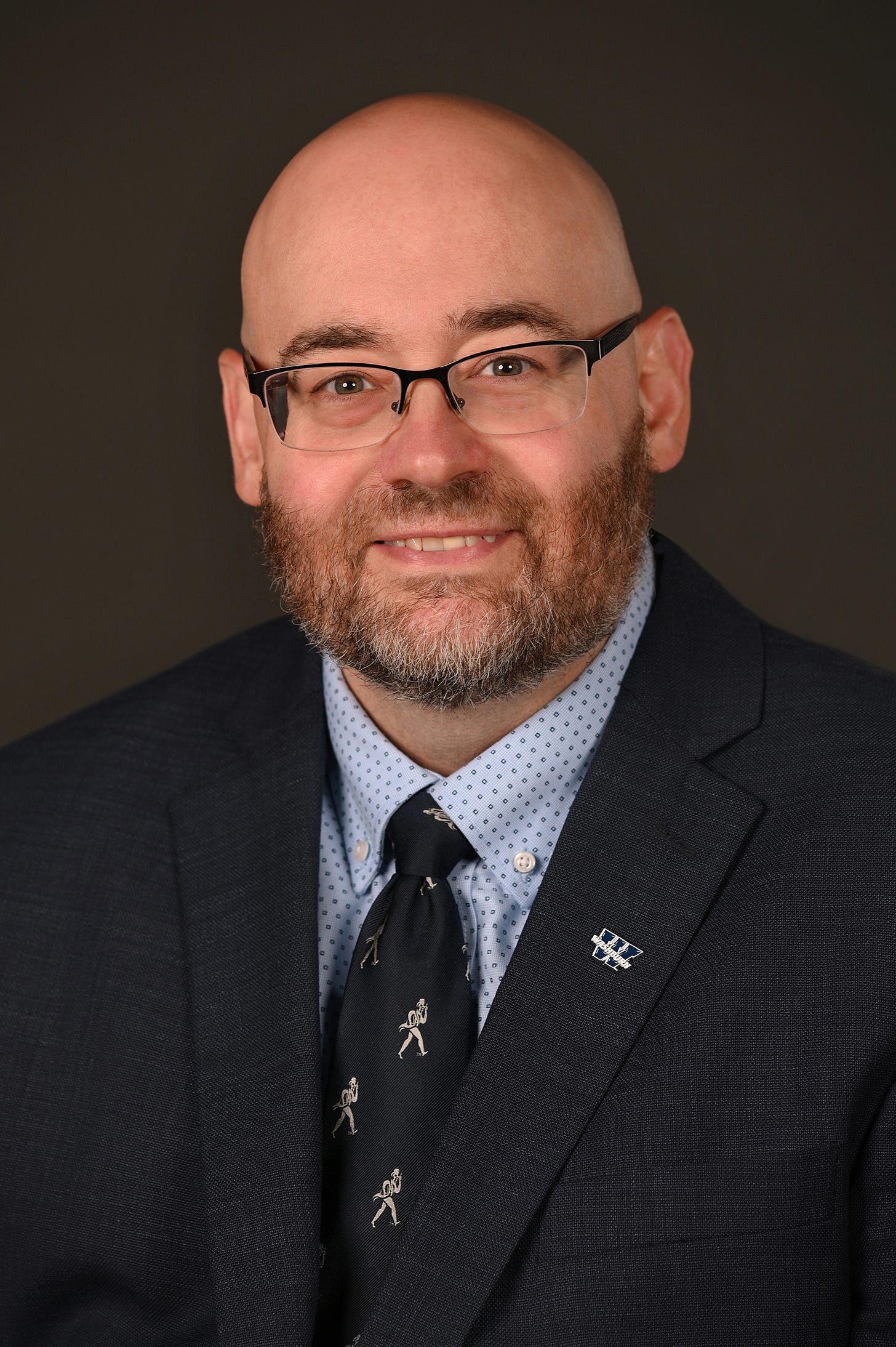What I Do #10: Ernie Webb, III, author of "Goodbye, Butterfly: Murder, faith and forgiveness in a small Kansas town" tells us about what he does
What I Do features a single person in the crime content space and their answers to a set series of questions about what they do. The Art of Explaining Crime is an independent newsletter that helps you think and write about crime.
What I Do #10: Ernie Webb, III
What do you do?
I’m the author of the true crime book “Goodbye, Butterfly: Murder, faith and forgiveness in a small Kansas town,” which is a bestseller in multiple categories on Amazon. My full-time job is Director of Strategic Enrollment Management Marketing and Communications at Washburn University in Topeka. I’ve been in higher ed for 14 years now. Before that, I worked as a beat reporter, columnist, copy editor and editor in the newspaper industry.
What was your path to doing this?
“Goodbye, Butterfly” started as a capstone project in graduate school. The case I wrote about (the murder of Brenda Keller, the 12-year-old daughter of the town pastor in tiny Dover, Kansas) happened during my sophomore year of high school at nearby Burlingame, Kansas, in 1991. I had mutual friends with Brenda and was always fascinated by her story.
I felt a connection with Brenda and eventually realized that a higher power was imploring me to write about her. So, I decided to write a paper about her during my last semester of grad school at Washburn. I began researching in January 2017 and felt the story was more than just a paper. It took nearly eight years to complete, but it finally published in September 2024.
If you’re asking about my career path, I have always loved sports and was fortunate at a young age to know I wanted to write. After graduating from high school in 1994, I attended a college that was way too big and ended up at Washburn. I began my newspaper career in 1999 and worked my way up to the Tulsa World, which I resigned from in 2010. I saw the writing on the wall in that industry and wanted to try something else.
I was a media specialist at the Washburn Alumni Association from 2011 to 2015, a campus communications coordinator at Metropolitan Community College-Kansas City from 2015 to 2017 and came back to Washburn in my current role in 2017. I never imagined working in marketing, but it has come in handy in promoting the book.
As far as writing, I have always loved it. My wife and others will tell you I am far better at sports writing than anything else, but I write about numerous topics, including true crime and my father, who I’m writing my next book about.
What's your process?
I learned early in my newspaper career that accuracy is everything. My process is researching until I’m comfortable with writing. I don’t even think about writing until I have all the information I need.
Now, with “Goodbye, Butterfly,” I spent five years researching. I called hundreds of people, I dug through thousands of pages of court and case files, I drove to several states to find background information I needed. Once that was done, I outlined everything to the hilt. “Chapter 7: The Search for Brenda” is a good example of this.
I enjoyed the research far more than writing. The first draft was nothing more than a mind dump, then I refined it repeatedly. My editors, Shana Curtis Webb and Heidi Koger, were outstanding. They would not let me submit the manuscript until it was up to standard.
What’s the key to getting through to your audience?
Authenticity. I’ve read a considerable amount of true crime. Some of it is incredibly good. Some of it is sensationalized. Some of it is a compilation of police reports, court transcripts and newspaper articles. I wanted “Goodbye, Butterfly” to be more than that. A reviewer referred to my book as “sentimental true crime.” I love that.
Being entertaining is important, of course, but with any non-fiction, you need to stick to the facts. Let the story entertain. Brenda Keller’s murder is a horrific story, but it also is engrossing, stunning, heart-wrenching and, I hope, ultimately uplifting.
What’s something you wish people understood about crime, justice, or another related topic?
Everybody wants to know the “why.” “Why did he do this?” is one of the most common questions I get about Brenda Keller and her killer. The bottom line is we often will never know the answer to that question. Another thing I hear all the time, and all of us hear it on the ID channel, is “stuff like that doesn’t happen here.” Sadly, it happens everywhere, and it has for a long, long time. Also, police reports might be thorough, but never assume everything an officer saw shows up in a report.
What advice would you give to someone just starting out who wants to do what you do?
Read as much as you possibly can. I was fortunate to work as a copy editor at the Topeka Capital-Journal when it had an unbelievably talented writing staff. You learn reading copy like that. Write as much as you can, and push yourself to occasionally write about topics you don’t know much about. Be relentless when you believe what you're doing is meaningful.
Lastly, it’s a true honor when anybody reads something you’ve written. Always be kind and thank people for supporting your work. They are giving you the gift of their time to read your work. That includes critics.
What haven't I asked you about that you'd like to add?
If you can, please include my website: erniewebbiii.com
And that’s What I Do for this week! Do you have any suggestions for someone you’d like to see answer these questions? Let me know, and I’ll see if I can get them!




